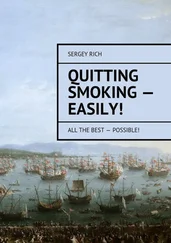“It is his own fault if he does not care very much for himself,” answered Rudyard.
“Is it his own fault?” asked Lloyd sadly, for he liked his father very much, “He thinks that he would see my sister and her husband and his grandchildren more often, if he had money, and if he had given my sister a dowry. He thinks that his son-in-law would think more of him and ask him to dinner more often.”
“In my opinion,” said Rudyard, using the phrase which was always the introduction of a dogma, “money has nothing whatever to do with the matter. Pardon me for being intimate, but I would say that the real cause of all the difficulty is that your father did not know how to make love, or your mother has never wanted to have your father make love to her. This is the true meaning of the fact that she is dissatisfied with him. Love is always the beginning of everything, that’s obvious. And perhaps we may go so far as to say, that if there had been satisfied love between your parents, your father would have prospered and made as much money as your mother wanted him to make.”
“That’s just an idea, that’s nothing but an idea . Money is the root of all good!” shouted Laura from the kitchen, helping herself to one more pony of gin as the visitors arose to depart.
“Everything is mixed in everything else,” said Jacob to himself, thinking of how much Laura desired to be loved.
THREE: “NO ONE FOOLS ANYONE MUCH, EXCEPT HIMSELF”
The human beings of the circle and the circle as such existed for Jacob Cohen in a way private to him. The other boys of the circle often discussed each other, but seldom thought about each other when they were alone. They came together in order not to be alone, to escape from deviceless solitude. But Jacob enjoyed the solitude of the morning and the early afternoon, during which he strolled through many neighborhoods, inspected the life of the city, and thought about his friends of the circle. They were objects of his consciousness during his solitude and in this way they existed in his mind like great pictures in a famous gallery, pictures which, however, were studied not merely for curiosity and pleasure, but as if they contained some secret of all pictures and all human beings. Jacob, thinking about his friends and walking many city blocks, was borne forward by the feeling that through them he might know his own fate, because of their likeness, difference, and variety.
This day of September as Jacob set forth was a day of profound feeling because the children went to school again for the first time. Jacob and his friends had prospered in school, and most of all at the university, in a way they never had since then. Now five years had passed and were used. All of them were in some way disappointed as they had not been in school, where each had been able to do what he truly wanted to do. The school had been for them a kind of society very different from the adult society for which it was supposed to prepare them.
Jacob had arrived at Central Park. To the west was a solid front of expensive apartment houses, in front of him was a grove of trees and an artificial lake, next to which were empty tennis courts. Jacob decided to sit down on a park bench and let the emotion inspired by the first morning of school in September take his mind where it would.
He soon found himself thinking, as often before, of the character and fate of his friends of the circle.
Francis French, who now belonged to the circle less and less, had been at first the most fortunate one and the one who impressed the official middle class most of all. He was an extremely handsome young man who spoke English with a perfect Oxonian accent which he had acquired without departing from the state of New York. His presence, his manners, and his accent had secured for him immediately after graduation an appointment as a teacher of English literature in the best of the city universities. He was clearly marked out as a young man with a brilliant academic future.
At the end of the first term, however, the head of the department, who had chosen Francis from among many, found it necessary to summon him and ask him about an anonymous note which accused Francis of immoral relationships with some of his students. In this interview Francis had need only of the good manners and tact which he had cultivated for long and with easy success. But in the shock of the confrontation, he did not reply that the note was untrue and that his friendships with his students had been misinterpreted. Instead of making this nominal denial, which was all that was required, he replied with pride and hauteur. He declared that his sexual habits were his own concern and he said that he refused to recognize the right of anyone to question him about his private life. The head of the department liked Francis very much and he did not care very much what Francis’ habits were, for he was an excellent teacher. But he felt that the refusal to make the conventional denial suggested the likelihood of future difficulty, and being concerned about his own position, he felt he had no choice but to dismiss Francis. He tried again to suggest to Francis that a nominal denial would be sufficient, but Francis would not be moved. His stand gave him the pleasure of being self-righteous. For long he had felt strongly that homosexuality was the real right thing, the noble and aristocratic thing, a view he supported by citing the great authors and artists who had been as he was.
To Jacob, looking back, Francis seemed to have been involved in a failure of the imagination. He had been unable to imagine the feelings of the head of the department which were complex and yet also convenient enough. This failure was important because in so many ways Francis had devoted his will to making himself impressive to other human beings.
Now Jacob bore in mind how Rudyard had applauded Francis’ stand, although it had cost Francis the status in life he desired so much. Rudyard had declared that no other answer was possible without an absolute loss of self-respect. Yet had Rudyard been confronted with the same choice, Jacob was sure that he would not have hesitated in making the answer which was convenient and profitable. Whether Rudyard knew this to be true of himself or not, he too was involved in the same loss of imagination, for he did not recognize how much Francis had hurt himself. “No one fools anyone much, except himself,” said Jacob to himself. “How do I fool myself?”
Francis had soon become a teacher in the public school system, and devoted himself with energy and concentration to his sexual life. For five days each week he taught from nine until three and then from four until midnight his obsession with sexual pleasure took hold of him and in time preoccupied him so much that all the other things which had interested him were forgotten. The drudgery of teaching in a high school was the basis of the intense system with which he dealt with actuality, performing his duties as a teacher with thoroughness because this made him feel secure and full of control when he let himself go after school.
He let himself go more and more. He came less frequently to the Saturday evenings of the circle, and when he did come, he conferred most often with Rudyard, discussing his adventures and conquests. He told Marcus Gross, who was boisterous and ebullient about his own orthodox desires, that no one knew what sexual pleasure was until he became homosexual. He said also that everyone was really homosexual. Only fear, ignorance, foolishness, and shame kept all human beings from being aware of true passion and satisfaction.
Yet Jacob wondered if Francis did not permit himself passages of intellectual doubt. His sexual preoccupation had become not only a fixed idea which annihilated all other ideas, as one addicted to opium withdraws more and more from all other things; it had become a kind of sunlight: Francis had at first regarded all things in that light and he had come at last to see only the sunlight and nothing else.
Читать дальше












